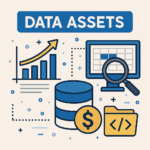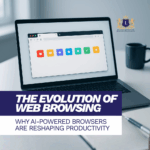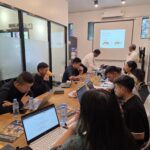As we navigate deeper into a world shaped by artificial intelligence (AI), automation, and technological advancements, one reality is becoming increasingly clear: some jobs are at risk of becoming obsolete in the next five years. While this reality may feel unsettling, it also presents a unique opportunity to adapt, pivot, and future-proof your career. Insights from the YouTube video, “The Jobs That AI and Automation Will Destroy,” highlight the roles most vulnerable to automation, the emerging opportunities, and strategies to stay ahead in a rapidly evolving job market.
The “Ostrich Effect”: Acknowledging the Changes
Many professionals fall into the trap of believing their careers will remain untouched by AI advancements. This mindset, often referred to as the “ostrich effect,” involves ignoring the uncomfortable truth about job automation. Just like an ostrich burying its head in the sand, denying the impact of technological change won’t stop it from happening. The first step in future-proofing your career is recognizing that while some roles will become obsolete, new opportunities are already on the horizon.

Which Jobs Are at Risk?
Using reliable sources like the Occupational Information Network (O*NET), the World Economic Forum’s Future of Jobs Report 2023, and the International Monetary Fund’s (IMF) research on AI and the workforce, a clear picture emerges of jobs most vulnerable to automation. These include:
- Clerical Jobs: Roles such as bookkeeping, payroll, and auditing are increasingly being replaced by automated software.
- Sales Positions: Telemarketers, retail agents, and customer service roles are declining as AI-powered chatbots and e-commerce platforms take over.
- Banking and Finance Roles: Traditional banking jobs like bank tellers and account clerks are being automated.
- Social Services: Some childcare and support roles may shrink as automation and AI technologies become more prominent.
Jobs That Are Here to Stay
Not all jobs are at risk. Some careers are flourishing thanks to AI complementarity, where AI enhances tasks rather than replacing them. These roles include:
- AI and Technology Careers: Machine learning specialists, data analysts, and cybersecurity experts are in high demand as technology continues to advance.
- Sustainability Roles: With the rise of climate change concerns and renewable energy needs, careers focused on sustainability are thriving.
- Healthcare and Education: As demand for healthcare professionals and educators continues to grow, these sectors remain resilient to automation.
- Skilled Trades: Hands-on jobs in construction, repair, and other skilled trades are harder to automate and continue to see consistent demand.
Why Some Jobs Endure: The Power of AI Complementarity
The reason some jobs will endure lies in their high level of AI complementarity. AI tools can enhance tasks in these roles, but the human element remains irreplaceable. For example:
- Judges: While AI can assist with legal research, the decision-making process and authority of judges cannot be replaced.
- Marketers and Artists: AI tools can amplify creativity and improve campaign efficiency, making roles in marketing and the arts more dynamic and essential.
How to Stay Relevant: Reskilling and Pivoting
If your job feels vulnerable to automation, there are two main strategies to safeguard your career:
- Reskilling: This involves adapting within your current role by integrating AI tools into your work. For instance, marketers can use AI to create personalized campaigns, while banking professionals can master digital banking tools. Reskilling boosts your productivity and makes you more competitive in your field.
- Pivoting: If you feel your industry is in decline, consider transitioning to a growing field. Ask yourself: Which industries align with your passions and skills? Sectors like technology, green energy, and healthcare offer immense growth potential in a tech-driven world. Exploring these emerging industries could help you secure a more stable and prosperous career path.
Future-Proofing Your Career: Key Actions to Take
To future-proof your career, start by auditing your skills:
- Review Job Listings: Look at job postings in your desired field and identify any skill gaps. Focus on acquiring qualifications in high-demand areas like business management, computer science, cybersecurity, healthcare, or law.
- Networking: Build connections with professionals in your field on platforms like LinkedIn. By learning how AI is impacting their roles, you can gain valuable insights and adapt more effectively.
- Lifelong Learning: Staying updated on industry trends, AI advancements, and new technologies is essential. London Institute of Business and Technology (LIBT) offers courses in high-demand subjects such as data science, AI integration, cybersecurity, and sustainable business practices, equipping you with the skills required to stay competitive and thrive in a technology-driven world. See full list of programmes: All programmes
Growing Sectors: Where Opportunities Are Flourishing
Some sectors are seeing a surge in demand as AI and automation evolve. The most promising fields for career growth include:
- Artificial Intelligence: Roles like data scientists, AI developers, and machine learning engineers continue to grow as AI becomes more integrated into various industries.
- Sustainability: Careers focused on climate change mitigation and renewable energy are on the rise, offering exciting opportunities for the future.
- Healthcare: With an aging population and an increased focus on health and well-being, demand for healthcare professionals continues to grow.
- Skilled Trades: Jobs that require manual expertise, like construction, repair work, and skilled labor, remain vital and are harder to automate.
Embracing the Change
The rise of AI and automation is not the end of the job market—it’s a transformation. While some roles will disappear, others will thrive, creating opportunities for those willing to adapt. Whether you choose to reskill in your current role or pivot to an emerging industry, the resources to help you navigate this shift are within reach. The key to future-proofing your career is to embrace change today. Are you ready to take the leap?







Leave a Reply
You must be logged in to post a comment.